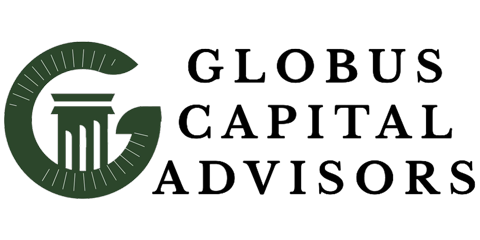Home » Mortgage Lending » FHA Mortgage Loan
FHA Loan
FHA Mortgage Loan: Your Key to Unlock Homeownership
Understanding FHA Mortgage Loans
An FHA mortgage loan is an attractive option for those looking to buy a home, especially for first-time buyers or those with lower incomes. This government-backed loan offers a range of benefits, including low down payment requirements, flexible credit and income guidelines, and fixed- or adjustable-rate loan options. In this guide, we’ll take a closer look at FHA mortgage loans, including their history, key benefits, and important details to keep in mind when applying. Whether you’re just starting your home-buying journey or are considering an FHA loan, this guide will provide you with the information you need to make informed decisions.
Features
- Minimal down payment requirements
- Versatile income and credit requirements
- Both fixed- and adjustable-rate loan options
- Ability to finance 1- to 4-unit properties and condos in select cases
- Option to utilize gift funds from a relative or employer* towards down payment
- Opportunity for home sellers to cover up to 6% of the applicant’s closing costs (pending underwriting review and approval)
Frequently Asked Questions
Is it possible to obtain a second mortgage while holding an FHA loan?
Under FHA guidelines, borrowers are typically limited to holding a single mortgage at a time, with a few exceptions. For instance, if a borrower is relocating to an area that’s not within reasonable commuting distance from their current principal residence, they may be eligible for a second FHA mortgage without having to sell their existing FHA-financed property. Other exceptions may be granted on a case-by-case basis, such as when a borrower’s family has grown in size or when a borrower is leaving a jointly-owned property. While obtaining a second FHA mortgage can be challenging, it’s important to understand the guidelines and exceptions to make an informed decision.
What is the maximum amount I can qualify for with an FHA mortgage loan?
The maximum amount that an individual can qualify for with an FHA mortgage loan varies depending on a few factors, such as the location of the property and the borrower’s creditworthiness. The FHA loan program sets maximum loan limits that vary by county and are adjusted annually to reflect changes in local home prices.
In addition to the loan limits, the amount a borrower may qualify for will depend on their creditworthiness, income, debts, and other financial factors. The FHA loan program is designed to help borrowers with lower credit scores and smaller down payments, but borrowers will still need to meet certain income and debt-to-income requirements to qualify. Ultimately, the best way to determine how much you may qualify for with an FHA loan is to speak with Globus Capital Advisor who can review your specific financial situation and provide guidance.
Is there a way to eliminate FHA mortgage insurance premiums?
If you’re considering an FHA loan, it’s important to understand how mortgage insurance works. With an FHA loan, mortgage insurance is typically required for the life of the loan. However, if you made a down payment of 10% or more, you can avoid paying mortgage insurance premiums after 11 years. On the other hand, if your down payment was less than 10%, you’ll need to refinance into a Conventional or VA loan to get rid of the monthly mortgage insurance payments. Keep in mind that refinancing may come with additional costs and fees. It’s important to contact Globus Capital Advisor to determine the most effective strategy for eliminating FHA mortgage insurance.
Do FHA loan interest rates tend to be lower compared to conventional rates?
Determining whether an FHA loan or a Conventional loan is the better option for you depends on various factors. If you have a strong credit profile with low levels of debt, a Conventional loan may be more beneficial even if the interest rates are similar to FHA loans. This is because Conventional loans often come with additional advantages. However, if you have a lower credit score, less established credit, or slightly higher levels of debt, an FHA loan may be the cheaper option in the long run, or it may be the best option for first-time homebuyers who do not qualify for a Conventional loan. It’s important to consult with a mortgage loan officer to assess your individual circumstances and determine the best option for you.
What types of properties can I purchase with an FHA loan?
FHA loans can be used to purchase a variety of properties, including single-family homes, multi-unit properties, and condominiums.
These are just a few common questions and answers about FHA loans. If you have more specific questions, it’s always best to consult with your Globus Capital advisor who can guide you through the process.
*The appraised value of the property may influence the loan amount.
**Generally, cash from equity is tax-free. However, this information should not be considered as tax or financial planning advice. Consult a tax advisor for tax-related advice and a financial planner for guidance on improving your retirement plans. Emortgage capital is not associated with any government agencies. The materials presented here are not from HUD or FHA and have not been approved by HUD or a government agency. To be eligible for a reverse mortgage, borrowers must obtain a certificate by attending counseling sessions with a HUD-approved agency. The borrower must be at least 62 years old. Loan proceeds are not considered income and will not impact Social Security or Medicare benefits. However, your monthly reverse mortgage advances may affect your eligibility for certain other programs. Consult a local program office or an attorney to determine how, or if, monthly reverse mortgage payments could affect your specific situation. At the end of the reverse mortgage loan contract term, you may no longer own some or all of the equity in the property subject to the reverse mortgage, and you might need to sell or transfer the property to repay the reverse mortgage proceeds with interest from your assets. We will charge fees for origination, mortgage insurance, closing costs, or servicing for the reverse mortgage, which we will add to the loan balance. The reverse mortgage loan balance grows over time, and interest will be charged on the outstanding loan balance. You retain the title to the property subject to the reverse mortgage until you sell or transfer it, and you are responsible for paying property taxes, insurance, and maintenance. Failure to pay these amounts may cause the reverse mortgage loan to become due immediately. Interest on a reverse mortgage is not deductible on your income tax return until you repay all or part of the loan.
Craig Kaminski
NMLS #: 1417248
licensed by:
E Mortgage Capital, Inc. d/b/a E Mortgage Capital,
NMLS# 1416824
(www.nmlsconsumeracces.org)

